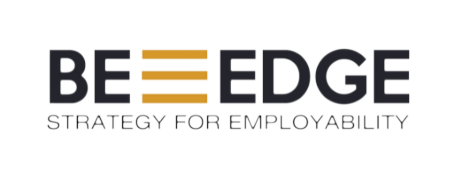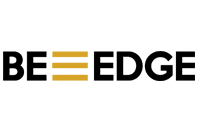
A Student View on the Career Market
by James Sweeny
January 29, 2025
Discovering how you fit into the business world can be a challenging and often confusing process. With so many different industries, job titles, and career paths to choose from, it can be difficult to know where to start, especially as a student.
One of the biggest challenges in finding your place in the business world is figuring out what you want to do. Do you want to work in a specific industry, or are you open to exploring different options? Do you have a particular skill set or area of expertise that you want to use in your career, or are you still trying to figure that out?
Another challenge is figuring out what opportunities are available to you. This is especially true if you are just starting out in your career and don’t have much experience.
Additionally, in a competitive employment market, knowing how to sell oneself and stand out can sometimes be challenging. You may feel like you don’t have the right experience or qualifications or that there are too many other candidates with more impressive resumes.
Overall, discovering how you fit into the business world can be a difficult and sometimes overwhelming process. Finding ideal work and developing a great career takes time, patience, and tenacity. However, with determination and a willingness to learn and grow, you can find your place in the business world and achieve your career goals.
Employability: What Formal Education Gets Right and Wrong
My reasoning behind highlighting the competitive and daunting nature of the employment market as a current student is to discuss the impact that case studies have had on my academic journey and, as a result, my employment prospects.
The various case studies used throughout my international business class were great because they provide a unique insight into real-world business situations. By analyzing case studies, I learned about factors influencing business decision-making and the challenges companies face when expanding into foreign markets.
One of my favorite case studies during the course was on Target’s attempt to expand to Canada, which has gone down as one of the largest business failures in history. This was my first exposure to case studies, and we analyzed possible reasons for Target’s failure. Although this may seem like a small assignment, the value of analyzing why a company might have failed and what they could have done better is a great exercise for exposing newcomers to how business works and how decisions are made.
The link to this Target case study can be found here:
https://archive.canadianbusiness.com/the-last-days-of-target-canada/
Through case studies, I’ve learned the importance of understanding the local culture and business environment in a foreign market. Companies need to consider the local regulatory environment, the competitive landscape, and the preferences and needs of local customers when entering a new market.
Case studies can give students a deeper understanding of the internal decision-making processes of companies. Students can see how different departments and stakeholders within a company influence decision-making and how these decisions are ultimately implemented.
There is a reason why Harvard Business School (HBS) is known for teaching through real-world case studies. Instead of lectures, analysis is performed in the classroom through student-led discussions. According to HBS, the reason why case studies are done in the classroom is that “The case method prepares you to be in leadership positions where you will face time-sensitive decisions with limited information. Reflecting on each class discussion will prepare you to face these situations in your future roles.” (hbs.edu) Education is a stepping stone into future employment, and I believe to boost employability and empower students to take strong action in the real world, an active learning experience is necessary.
From what I’ve seen in my undergraduate studies at Northeastern University, this type of learning is underused. International Business and Global Social Responsibility was my first exposure to this, and it has left a lasting impact. I feel more empowered knowing I can make decisions based on my own analysis of the business world, and I am grateful I got the opportunity to explore a unique insight into the complex world of business and the various factors that influence decision-making.
Final Project: How I Gained Insights Into the Business World
For my final project, I completed an analysis on whether Drexel Hamilton, an investment bank based in New York City, should expand to Singapore or the United Kingdom. As part of my
research, I had the opportunity to speak with a managing partner at the firm and gain invaluable insights into what the company was looking for in regards to expansion.
I conducted a thorough market analysis of both Singapore and the United Kingdom, including assessing the competitive landscapes and the potential risks and rewards associated with expansion into these markets.
One of the key things that I learned through my research and conversations with the managing partner was the importance of building strong relationships in the investment banking industry. In Singapore and the United Kingdom, building a strong network of clients and partners is crucial for success. This is an insight I always thought about, but it was fascinating seeing how much it influenced decisions.
Overall, completing this final project was a truly rewarding experience. Not only did it allow me to apply my knowledge of international business to a real-world scenario, but it also gave me the opportunity to gain a unique insight into the investment banking industry and the various factors that influence decision-making within this industry. Case-based learning has opened my eyes to
possible careers within the business world, and showed me how to make decisions based on quantitative and qualitative analysis.
About the Author
 James Sweeney is an undergraduate student at Northeastern University pursuing a degree in Business Administration and a minor in Computer Science. He is Graduating in 2025.
James Sweeney is an undergraduate student at Northeastern University pursuing a degree in Business Administration and a minor in Computer Science. He is Graduating in 2025.


